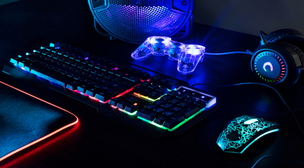How to Prepare Properly For Exams
There are a few things that you need to do in order to prepare properly for exams. You need to get the timetable for studying set, organize your study sessions and stay away from junk food. Drink lots of water.
Organize your study sessions
A study schedule is a key component to successfully preparing for exams. This helps students organize their schedules and allocate time for study, assignments, and other commitments.
Organizing your study sessions effectively will minimize procrastination. Instead of pulling out a to-do list to accomplish tasks, create a study schedule and follow it. If your calendar is jammed, make some alterations to your schedule. If you have urgent assignments that need to be done, but you have exams coming up, don't be afraid to get help. The experts from the https://www.wowessays.com/ will help you with urgent essay writing, and you won't be distracted from your exam preparation.
Create a study schedule that gives you a goal for each day. For instance, try to complete at least three hours of study each week. It is also a good idea to schedule a few minutes for exercise.
Start studying for upcoming exams two to three weeks before the tests. You can also check the syllabus to learn more about your upcoming exams. As you prepare for exams, you may need to alter your sleep schedule and adjust your schedule in other areas of your life.
Make a study plan that includes a timeline for each assignment. This will allow you to allocate time to each topic and help you stay on track.
The most productive studying comes in the first 25 to 30 minutes of hitting the books. Use this time to rehearse and revise material. Consider using a free study planner to help you organise your study sessions.
Another study tip is to use a visual learning strategy. You can incorporate flashcards and other study aids to retain information. Also, be sure to incorporate some fun methods into your study sessions.
Finally, keep track of your progress through a study planner. These simple templates will help you track your progress over the entire semester. Remember to cross out completed tasks so you can re-organize them according to your priorities.
Set up a time table
If you want to be successful in your studies, you should create a time table. This helps you plan your study sessions and allocate your time. By doing so, you can avoid distractions. In addition, it can help you remember what you've studied.
For instance, you should know the minimum amount of time you need to complete each assignment. It's also a good idea to set aside an hour or two to review notes or study material. You can also incorporate extra credit opportunities into your timetable.
Another important factor is the number of hours per week you are likely to spend on studying. Generally, you should reserve about 70 percent of your free time for studying. However, the exact amount of time you need to devote to your studies will vary with your individual schedule and learning style.
The best way to go about creating your timetable is to create a series of small, logically spaced study blocks. These blocks will enable you to get more done in less time. To keep you on track, you should mark the days before and after each study block. Using a digital or paper timetable can help you achieve this goal.
Likewise, the best time to start studying for an exam is seven to ten days prior to the actual date. This allows you to prepare for the exam while still maintaining a normal routine. Additionally, you'll be able to relax after your big test.
Lastly, the best way to go about setting up your timetable is to consider what you are trying to achieve. For instance, you should make sure you dedicate enough time to subjects that are most challenging.
Drink plenty of water
When taking exams, students should drink plenty of water to prepare properly. Dehydration is associated with reduced mental alertness and concentration. Drinking plenty of water can also ease anxiety and headaches.
Researchers at Westminster University and the University of East London have found that drinking water can help improve student scores. In fact, a study on 447 undergraduate students showed that those who drank plenty of water during the exam tended to do better than their peers.
Students who drank water before an exam were able to improve their grades by about 5%. This was the greatest improvement seen in first year students. Second year students saw a smaller improvement of about 2%. However, researchers are still investigating the relationship between water intake and test performance.
Although most students do not consume a healthy diet, it's important to make sure you get the nutrients you need. Eating a nutritious, well-balanced meal can increase your energy and concentration levels.
It's also a good idea to avoid caffeine. Too much caffeine can cause anxiety and dizziness. Caffeine can take ten hours to be metabolized, so you shouldn't start drinking it too close to an exam.
Getting adequate sleep is another way to ensure you're ready for an exam. Many students feel more stressed and jittery when they aren't well-rested. If you are a night owl, try to finish studying early and head to bed.
The right food can give you the energy you need to study and complete your assignments. Some studies have shown that protein-rich foods like nuts, seeds, and yogurt may boost concentration. Carbohydrates are also good to eat, but they can cause an energy crash.
Avoiding alcohol and caffeine can help you maintain your focus during an exam. However, it's important to stay away from alcohol the day of the exam.
Avoid junk food
It's important to eat a balanced diet to maintain good health. Eating the right foods will boost your energy levels and increase your mental alertness. Also, a healthy diet will help you to complete your coursework on time.
However, a diet full of junk food will interfere with your concentration and brain function. Junk foods are high in calories, saturated fats and salt. This can increase your risk of developing heart disease.
A healthy diet can also reduce stress. Many students experience stress during the weeks leading up to a test. These students tend to avoid preparing healthy meals or snacks. Instead, they end up snacking on unhealthy food, causing their bodies to lack nutrients.
Taking the correct amount of vitamins and minerals is essential to academic performance. Studies have shown that a well-balanced diet increases cognitive functioning and memory. Keeping a close eye on your diet can prevent fatigue and a headache during a stressful exam.
You should avoid drinking large amounts of caffeine around exam time. Although caffeine may give you a short-term boost, too much can impair your focus. If you want a caffeine fix, make sure it's from a natural source. Rather than consuming coffee, choose green tea or tea.
Foods that provide nutrients to your brain include nuts, berries and blueberries. Some studies have shown that the antioxidants found in these fruits can help you to concentrate better. Berries can also boost the flow of blood to the brain.
You should plan nutritious meals and snacks in advance. Students should spread out their meals and don't overeat. Getting adequate, restful sleep is important to your mental health and performance.
Make sure to drink plenty of water during the test. Dehydration can lower your energy and can lead to faintness.
Minimize distractions
It's important to minimize distractions when preparing properly for exams. There are lots of ways to do so. Whether it's turning off your television or turning off social media, there are plenty of ways to get rid of those pesky distractions.
The best way to minimize distractions is to create a conducive environment. This can include a separate room or table to study in. If you're not lucky enough to have your own dedicated study space, you can use public transport to get to your destination.
A "white noise" track can be used to mask distracting sounds. You can also use headphones to help focus. In fact, noise-cancelling headphones are a good investment.
Another tip is to set aside a specific time each day for studying. Having a schedule and a goal for the day can be a great incentive to keep you on track. And you can even reward yourself with a mini-break once in a while.
Other tips for minimizing distractions include putting your phone in silent mode. This is especially important if you're in a library. Doing so means you won't miss out on important messages or notifications.
While you're working on your studies, you can use a wall planner to keep yourself organized. This can include a "to do" list and a study schedule. You should also post a reminder on your door so that you can check in on yourself and make sure you are staying on top of your studies.
Another nifty trick for avoiding distractions is to make sure your study area is well-stocked with the essentials. For instance, consider adding noise-cancelling headphones and earplugs to the list of things you need to study with.
To read the latest guides, news, and features you can visit our Other Game Page.







